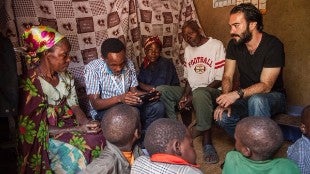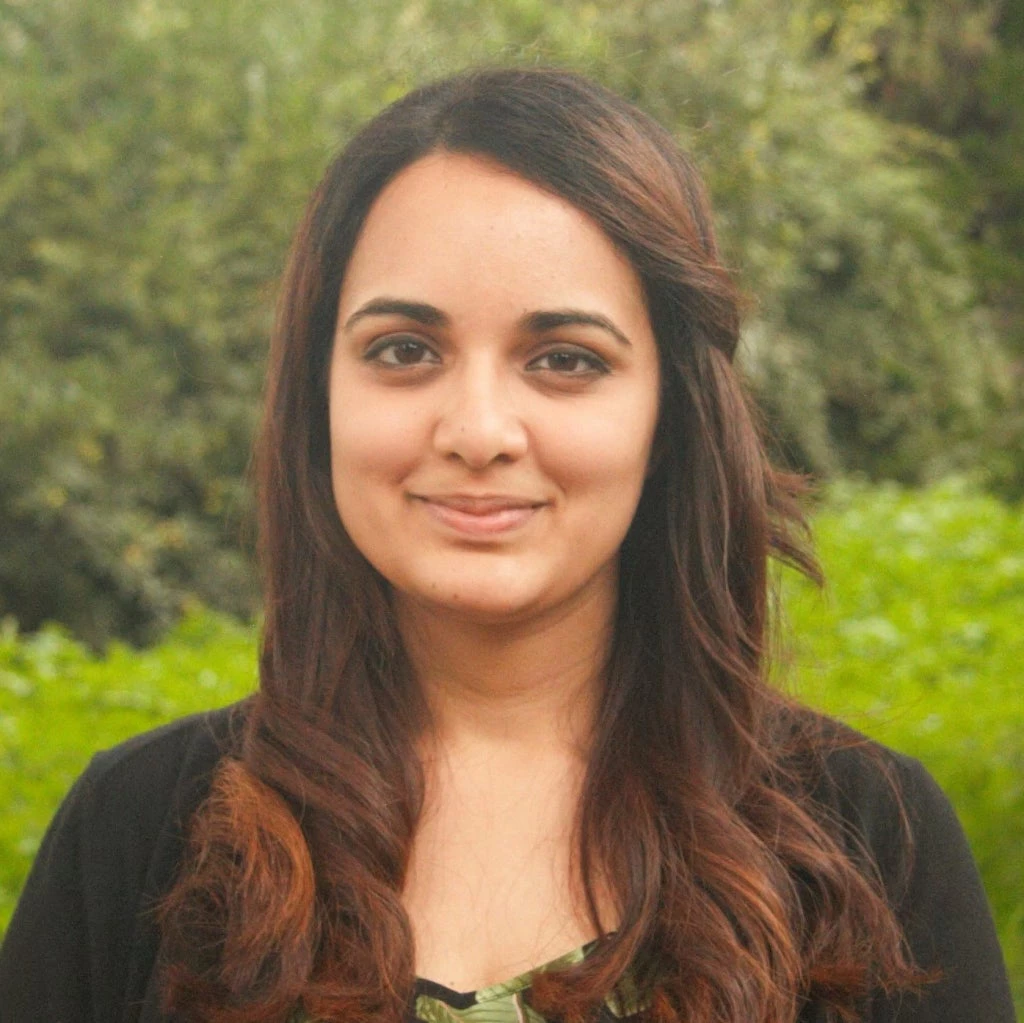Message from Gero Carletto (Manager, LSMS)
I would like to take this opportunity to remember Hans Rosling, a friend and supporter of the LSMS. I don’t need to tell you about his contagious enthusiasm for data or his masterful use of visualization tools to communicate statistics. I can’t say I knew Hans that well, but over the years, even if only based on sporadic interactions, I came to appreciate him both as a person and a scientist. I met him for the first time in 2013 and still remember the flabbergasted look on his face when Kathleen Beegle and I told him that the core LSMS team consisted of only four part-time staff. He was astounded to find out that we were so small, yet we looked so big. And, of course, being the visualization maestro that he was, he immediately came up with his own visual representation of the LSMS with a tool he had at his disposal at that moment: his hand!
From that day on, every time we met, he greeted me with his "LSMS hand." To this day, it remains a good, and fun, memory of Hans.
New Data from Nigeria and Ethiopia!
Nigeria
The National Bureau of Statistics (NBS) and the LSMS team launched the third wave (2015–16) of the Nigeria General Household Survey (GHS)-Panel in Abuja, on December 13, 2016. The GHS-Panel survey is a nationally representative survey administered every two-three years, covering a range of topics including demography, education, welfare, agriculture, health, and food security. The data are collected in two visits: post-planting and post-harvest seasons. The survey follows the same households over time and collects a rich set of information, to allow for comprehensive time-series analyses that can help shape policies for a wide array of development sectors.
Ethiopia
The LSMS team and the Central Statistical Agency (CSA) launched the third wave (2015–16) of the Ethiopia Socioeconomic Survey (ESS) panel data, on February 22, 2017.
The Crowd & The Cloud
 The Crowd & The Cloud is a four -part documentary that examines the rapidly growing field of “citizen data science.” The case studies featured in the documentary show how regular citizens, as opposed to career researchers, are now able to gather and share valuable data on environment, public health, climate change and economic development. Funded by the U.S. National Science Foundation (NSF), The Crowd & The Cloud is hosted by former NASA Chief Scientist Waleed Abdalati and is written and produced by Geoff Haines-Stiles, who was a senior producer and series director on Carl Sagan’s classic COSMOS series.
The Crowd & The Cloud is a four -part documentary that examines the rapidly growing field of “citizen data science.” The case studies featured in the documentary show how regular citizens, as opposed to career researchers, are now able to gather and share valuable data on environment, public health, climate change and economic development. Funded by the U.S. National Science Foundation (NSF), The Crowd & The Cloud is hosted by former NASA Chief Scientist Waleed Abdalati and is written and produced by Geoff Haines-Stiles, who was a senior producer and series director on Carl Sagan’s classic COSMOS series.
The entire series is already available on the documentary website. The fourth episode of the documentary, Citizens4Earth, features LSMS team member Talip Kilic working hand in hand with Uganda Bureau of Statistics (UBOS) Director of Socioeconomic Surveys, James Muwonge and field teams for the Uganda National Panel Survey (UNPS) in far-flung rural communities in Central and Southwestern Uganda. This segment is a classic story of data for development, shown as a human adventure with the quality of a National Geographic special.
On the television front, the first episode of The Crowd & The Cloud aired on April 6, on American PBS stations. The second, third, and fourth episodes will premiere on successive Thursdays at 21:00 EST, and all episodes will be distributed globally. The fourth episode, Citizens4Earth, will air on April 27 at 21:00 EST, and will be followed by a live roundtable discussion with our team members, Gero Carletto and Talip Kilic from 22:00 to 23:00 EST.
Data Council Endorses the Household Survey Protocol
World Bank President Jim Yong Kim's 2015 pledge to work with developing countries and international partners to ensure that the 78 poorest nations have household-level surveys every three years has led to a flurry of activity at the World Bank, with the LSMS team at the forefront of much of the work. Specifically, the LSMS team and colleagues in the Poverty and Equity Global Practice of the World Bank drafted a number of documents to outline the proposed role of different groups within the World Bank to contribute to the household survey agenda, including an Action Plan on Household Surveys, an Implementation Strategy to support the Action Plan, and most recently, a complete Household Survey Protocol for the World Bank.
The Household Survey Protocol was endorsed by the Data Council in January 2017. It outlines a proposed project cycle for household surveys at the World Bank, which includes: 1) project preparation and concept note review, 2) ex-ante review of survey design, 3) survey implementation and supervision, 4) ex-post review and monitoring of survey operations, and 5) data curation and dissemination. The Protocol envisions key roles in supporting household surveys for a number of groups within the World Bank, and identifies remaining needs for financing, building partnerships, and building capacity. It is our hope that this Protocol will help to standardize and streamline support for household survey activities within the World Bank.
Tanzania Conference on LSMS Data

The opening session featured the Hon. Dr. Philip Mpango (Minister for Finance and Planning, United Republic of Tanzania), Dr. Albina Chuwa (Director General, Tanzania National Bureau of Statistics), Mr. Roeland Van De Geer (European Union Ambassador to the United Republic of Tanzania and the East African Community), Ms. Bella Bird (Country Director Tanzania, World Bank), Ms. Mayasa Mwinyi (Government Statistician, Office of the Chief Government Statistician–Zanzibar), and Dr. Gero Carletto (Manager, LSMS program, World Bank)—as well as a keynote speech by Dr. Blandina Kilama (Senior Researcher, Policy Research for Development–REPOA). Read more >>
Special Issue of Food Policy Debunks Myths about African Agriculture
In this era of alternative facts, the use of high-quality data to set the record straight is more important than ever. In Africa, there has been a pressing need to revisit the conventional wisdom on the region’s agriculture. However, relevant data—where available—have long been outdated and inadequate.
With this in mind, the World Bank’s Africa Chief Economist Office and its partners initiated the Agriculture in Africa– Telling Facts from Myths project. It explores the validity of the conventions surrounding Africa’s agriculture and its farmers’ livelihoods that experts and policymakers considered as self-evident truths. The impact of such stylized facts cannot be underestimated. They shape the policy debates and drive research agendas
Now, a Special Issue of Food Policy brings together 12 open-access articles based on the project, drawing mainly on data from the first rounds (2009–2012) of the nationally representative Living Standards Measurement Study-Integrated Surveys on Agriculture (LSMS-ISA). Read more >>
Costing Household Surveys for Monitoring Progress Toward Ending Extreme Poverty and Boosting Shared Prosperity

The LSMS at the UN Statistical Commission: Leveraging International Partnerships for More and Better Household Survey Data
Household survey data constitute a cornerstone of the statistical toolkit for addressing the data needs for monitoring the Sustainable Development Goals (SDGs) on poverty and hunger. The 48th Session of the UN Statistical Commission, the largest annual gathering of Chief Statisticians from around the world, provided the LSMS team with an opportunity to reach out to the international statistical community on initiatives to improve the quality and increase the availability of household surveys. John Gibson, a leading expert in the measurement of poverty and undernourishment, presented a preliminary set of internationally agreed recommendations for survey design that countries can adopt in future household surveys, to collect more and better food consumption data. During the event, FAO Chief Statistician Pietro Gennari and the World Bank’s Development Data Group Director Haishan Fu also co-hosted the first Steering Committee meeting of the Global Rural and Agricultural Integrated Surveys (GRAInS) partnership between FAO, USAID, and the World Bank to improve the availability and quality of SDGs indicators on agriculture and beyond.
Between 2 Geeks: A New Podcast About Data and Development
 The new World Bank podcast series ‘Between Two Geeks,’ delves into the numerical side of life around the world. In the first episode, presenters Tariq Khokhar (Senior Data Scientist & Global Data Editor, World Bank) and Raka Banerjee (Project Coordinator, LSMS) look into the data behind demography with help from one of the world’s leading population experts, Dr. John May.
The new World Bank podcast series ‘Between Two Geeks,’ delves into the numerical side of life around the world. In the first episode, presenters Tariq Khokhar (Senior Data Scientist & Global Data Editor, World Bank) and Raka Banerjee (Project Coordinator, LSMS) look into the data behind demography with help from one of the world’s leading population experts, Dr. John May.
Dr. May explains that the growth and structure of populations is linked to one fundamental issue: mortality rates. When infant and child mortality rates decline, fertility rates also eventually decline and population growth slows down. And as life expectancies increase, the share of older people in a country’s population goes up. But it turns out things are a bit more complicated than that, and there are large implications for public policy that are ultimately driven by demography. Even when a region like Africa has declining fertility rates, “population momentum” means that countries will continue to grow. With this growth comes the need for better infrastructure, services, and crucially, jobs. By one estimate, the global economy will need to add 600 million jobs over the next 10 years - mostly in Africa and Asia - just to keep up with young people entering the workforce.
So how is demography shaping our future, and how can we make it the future we want?
Catch new episodes every Tuesday on The Data Blog, and on the World Bank’s SoundCloud channel. You can also subscribe to “World Bank’s Podcasts” in your podcast app or on iTunes.



Join the Conversation